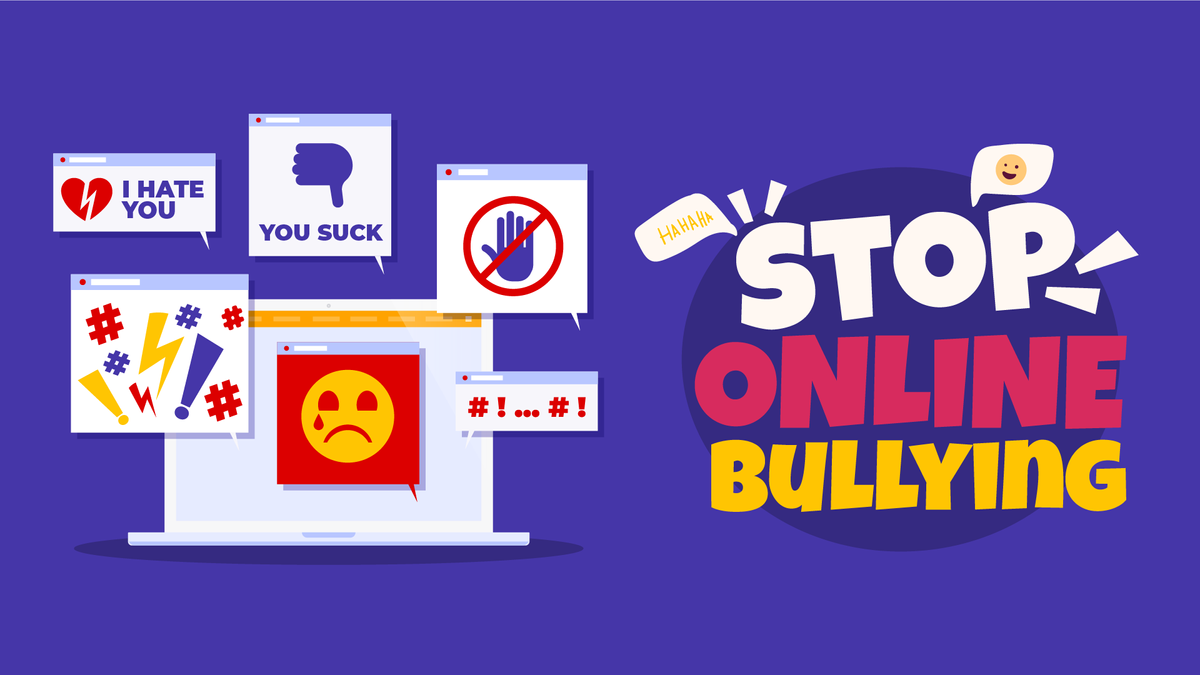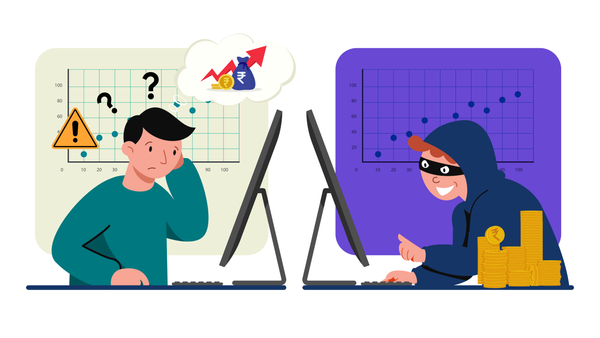How to Deal with Online Bullying?
Online bullying affects youths, often from friends or strangers. Learn about the steps to be taken in case of online bullying.

In the global cyber world, India has been making its name rapidly. However, about 33% of the population (mostly teenagers and children) have been reportedly bullied online by friends, family, or strangers. The cyberbullying scenario is not different for other countries too, where the most affected ones are women. A significantly high number of young girls suffer from online bullying and never report it to anyone due to fear and shame.
Harassment in the digital landscape is highly prevalent, a sharp rise that is being monitored and detected through various online and offline cybercrime divisions. A recent news headline in the Indian state of Kerala emphasized a young female who had ended her own life because of online harassment from her ex-boyfriend. Most cases die down or go unnoticed due to societal pressure and fear of embarrassment. The Indian community still marks these cases as a stigma that degrades the actual victim and not the perpetrator. It is imperative that any bullying, online or offline, be reported to the designated division.
India, Brazil, and the USA were the top nations reported to have the highest percentage of online bullying cases registered between 2022 and 2024. Digital platforms and their extensive popularity facilitate online crimes, which sometimes become untraceable due to highly efficient VPN tools, IP hiding tools, etc. Hackers can also use digital tools to gain access to their victims' information and exploit their access or blackmail them. It is important to immediately take action and address such actions to file a complaint on time and stop such crimes.
What Can be Counted as Online Bullying?
Any kind of harassment (even verbal) done digitally comes under cyberbullying or cybercrimes.
Cyberbullying Includes:
- They are sending sexual, mean, blackmailing, or harassing texts to someone in their private messages.
- Prank calls, texts, or media content can cause mental harm and cause delusions.
- Hacking a gaming/personal or business profile on digital platforms. It includes gaining access to their account, misusing it, copying the information, etc.
- Obscene, rude, or explicit content, language sent personally, or gaming platforms.
- Spreading rumors about an individual online is also considered cyberbullying. It can also include sharing their personal data or confidential information.
- Impersonating someone online
- Sending anonymous threats and random spam messages.
- Creating fake accounts or stealing identities. Posing to be a certain individual online and using their image, name, or designation.
- Engaging in websites or forums that spread hate content.
Steps to Deal With Online Bullying
- Don’t Reply: The first step involves not replying to any messages from the perpetrator or answering their calls.
- Don’t Retaliate: When facing an online bully, it is not always wise to instantly retaliate and act similarly. The victim can feel very tempted to respond or talk back, but it will only escalate further, making things worse. It is when one should take control by taking a break from all this and start handling things differently.
- Collect Evidence: Keep every piece of evidence. Gather whatever evidence is possible with date, time, and descriptions. It can be any media content that proves the harassment; it will also help you report the crime to the cybercrime division or local police.
- Report to the Platform: Most social media platforms have strict policies against online harassment and bullying. Report the bully to the support center of these digital platforms.
- Block The Bully: After collecting the required evidence and materials related to the bullying, block the perpetrator from all platforms/phone numbers so that no direct contact can be made.
- Take a Break & Tighten Your Privacy: Avoid using other accounts in the meantime to post anything on social media. It can be traced back to your original account. Tighten your privacy settings to control who can contact you or view your posts before discontinuing.
- Reach Out for Support: It is never right to suffer in silence or be afraid to share and trust someone because of cyberbullying. Talk to your close friends or family for support. They will not only help you but will also give you emotional support. Remember, you don’t need to convey bullying information to anyone other than a trusted friend, family member, or the police.
- Contact Authorities: If the online bullying is severe or hard to handle, file a complaint with the cybercrime division or police. Cyberbullying is illegal and authorities will take legal action to protect you.
Address Online Bullying on Social Media Platforms
The majority of online bullying incidents occur primarily on social media platforms. Online bullying and harassment violate the given terms and conditions of any digital platform and are completely illegal. Social media platforms prohibit users from harassment and bullying and they have policies against these crimes. The victim can learn more on these platforms to understand how to block or report the perpetrator.
After reporting the victim will receive a confirmation through email or text message. The victim can also email the support center of these digital platforms and keep a record of their actions. Through reporting, the victim will not only generate evidence but also it will help the police locate their suspect accurately. These digital media platforms provide deeper information about the perpetrator's IP address, last login details, device details, etc to the authorities.
With enough data and evidence, the victim can easily file the case to the cybercrime division for further investigation.
- Always make sure to review and go through the terms and policies section to understand how to keep your profile and data safe.
- Learn more about safely creating an account and sharing minimal information.
- Privacy settings are available in every digital platform, app, or website that can be altered as needed to stay secure.
- Their terms of service allow them to block or ban an individual if they have violated their terms of service, keep proof of any violations, and report abuse to the social media support centers.
- Using a two-way verification system will help keep your account safer from hackers.
How to File an Online Bullying Complaint in India
A national cybercrime reporting portal is launched in India to actively tackle online crime, fraud, and bullying cases. The portal (cybercrime.gov.in) is an online platform available 24x7 to address the grievances of the victims of online crimes. Individuals can approach the cybercrime reporting portal to seek immediate assistance.
You can visit the official online cybercrime portal to file your complaint.
Conclusion: Speak Up! Report Online Bullying
One should always report online bullying incidents to adults and local police so that the necessary action can be taken immediately to avoid escalation.
In some cases, the victim is not even sure if they are facing online bullying. They don’t share anything about it until it's too late, and the matter becomes emotionally and physically harmful. The victims might find it very embarrassing to share or report such cases. Hesitation is the most prominent emotion that holds them back from finding justice. Encouraging yourself or someone suffering in silence is the right choice. They can share evidence and collect proof to help police find their suspect and punish accordingly.
As we stay away from real-life bullies, it is also better to avoid online bullies. Ignoring them makes them feel powerless. By reporting those bullies, the individual is helping themselves and others too. The perpetrator can make anyone their victim in the future, which can be avoided by staying alert and handling things in a legal process. Always be careful when sharing information online, as it can be accessed by anyone and used against you in multiple ways. Safe browsing and communication are the keys to developing secure internet habits.
Links and Resources
National Cybercrime Reporting Portal of India
Report Harassment or Bullying on Instagram
Report Harassment or Bullying on Facebook





